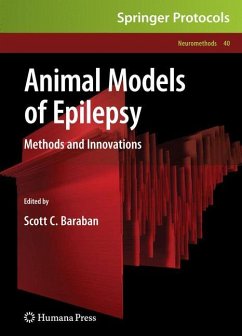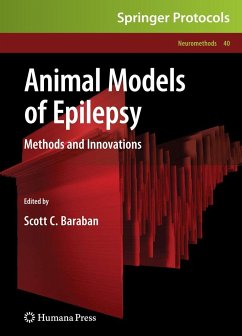
Animal Models of Dementia
Versandkostenfrei!
Versandfertig in 6-10 Tagen
85,99 €
inkl. MwSt.

PAYBACK Punkte
43 °P sammeln!
With an ever-increasing elderly population and the resultant rising levels of dementia-related disorders, preclinical research based on animal models is pivotal to our knowledge of underlying molecular mechanisms and drug discovery aiming at the development of therapeutic strategies alleviating or preventing the neurological devastation. In Animal Models of Dementia, expert researchers provide contributions that stress the importance of extensively validated animal models in drug discovery and development in order to predict clinical activity. Beginning with general aspects of animal modeling,...
With an ever-increasing elderly population and the resultant rising levels of dementia-related disorders, preclinical research based on animal models is pivotal to our knowledge of underlying molecular mechanisms and drug discovery aiming at the development of therapeutic strategies alleviating or preventing the neurological devastation. In Animal Models of Dementia, expert researchers provide contributions that stress the importance of extensively validated animal models in drug discovery and development in order to predict clinical activity. Beginning with general aspects of animal modeling, related ethical issues, and essential methodological considerations, the highly detailed volume then continues with various levels of model validation, including pathological, behavioral, neurochemical, pharmacological, and imaging aspects, followed by sections focused on specific disorders, such as Alzheimer's disease, Parkinson's disease, metachromatic leukodystrophy and adrenoleukodystrophy, amyotrophic lateral sclerosis, frontotemporal dementia as well as vascular dementia and more. As a volume in the renowned Neuromethods series, this book offers a detailed, yet accessible, overview of currently available animal models in the field of dementia research, and touches, as well, upon more general areas linked to the development and use of animal models.Comprehensive and efficient, Animal Models of Dementia will significantly aid both experienced animal researchers as well as investigators on the verge of beginning animal model-based dementia research.














